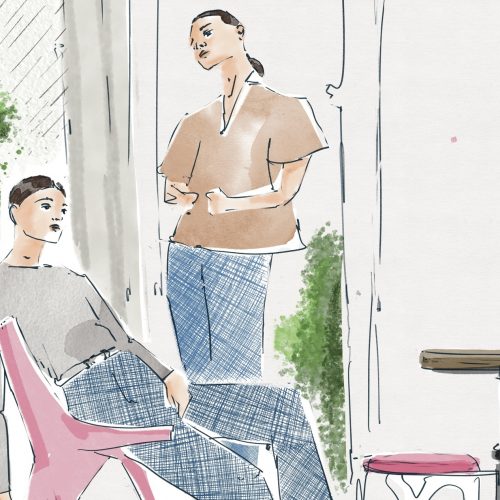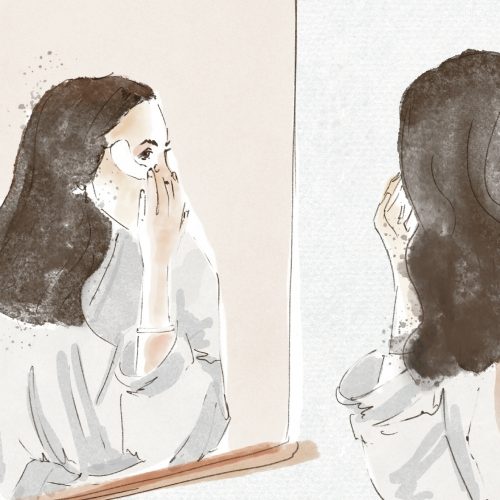What Is Bodily Autonomy And How To Get It?
"Bodily autonomy refers to bodily integrity as a basic human right, ranging from the right not to be harmed or put at risk of life, to not having them do in my body what I do not want or accept."
To receive the Luxiders Newsletter, sign up here.
WHY DOES IT MATTER TO TALK ABOUT BODILY AUTONOMY?
Because your body belongs to no one but you. It is a right and should not be denied, even though for a long time it has been and still is. Our life depends on how we care for, protect and choose what to do with our body, having the right, gives us the power to act by making decisions in situations we do not like and not being afraid to say so. Physical autonomy, as an expression of gender equality, is fundamental to achieve sustainable development.
How does not having this right affect us, is the result of allowing third parties to impose their beliefs on us, their bodily autonomy to violate us either physically or emotionally, to suffer discrimination based on age, race, ethnicity, sexual orientation, disability or even geographic location, and to undermine our health and our ability to make decisions.
According to the State of the World Population 2021 report, almost half of all women are deprived of their bodily autonomy.
To measure this, the report focused on three concepts: who decides about health care, who decides about birth control use, and who decides about sex. Not all women can make decisions about birth control, health care and sexual relations. 45% lack such autonomy.
In addition to that, the report also discusses the following points:
- Only 75% of countries legally guarantee full and equal access to contraceptives.
- Only about 80% of countries have laws that support sexual health and well-being. - Only about 56% of countries have laws and policies that support comprehensive sexuality education.
- Twenty countries or territories have laws against spousal rape, which means that a man can escape criminal prosecution if he marries the woman or girl he raped.
- More than 30 countries restrict women's right to leave their homes.
- Children with disabilities are almost three times more likely to become victims of sexual violence, and girls are at the greatest risk.
This is something that should make us all angry, we need collective action, and we need to unite to remove the norms, laws and practices that violate people's autonomy.
Although these data are focused on the bodily autonomy of women and children, we must be clear that every person should be empowered to claim bodily autonomy. This includes men, women, boys and girls, who have diverse sexual orientations and gender expressions. It includes people of all races, ethnicities, religions, nationalities and disabilities. The report says that men can also experience violations of bodily autonomy, for example, through non-consensual invasive anal examinations. People of all genders can be victims of forced reproduction (behavior that interferes with another person's reproductive choices) and even rape.

© Jana Sabeth via Unsplash
HOW TO ACHIEVE BODILY AUTONOMY?
The first thing to do is to be informed, because bodily autonomy is not just about sexual and reproductive choices, it is about the whole person, their dreams and potential in life. Most traditions and religions create spaces for people to explore their consciences about deeply personal issues, such as protecting their health, getting married or not, and planning for the future.
Encourage our autonomy since childhood, imposing tasks to be fulfilled such as doing their homework, making the bed, personal hygiene; this helps the development of their maturity, since doing everything for them helps to delay their personal growth.
Feed our confidence and self-esteem; recognize talent, efforts, achievements and self-esteem without falling into self-centeredness.
Establish limits, this is fundamental, both at home and in public, be tolerant without giving in completely to what makes us feel uncomfortable or in danger, not any behavior should be tolerated, achieve a balance between flexibility and firmness.
Knowing that there is time and places for everything, this helps us to do our daily activities without anyone forcing us or telling us what we should do, establishing a routine helps us to be autonomous, and respecting public places, where our behaviors do not affect the bodily autonomy of others.
Significant changes are being seen in the behavior of both men and women to demand this right, especially in young people, but there is still a long way to go, it becomes a social and political duty to promote greater scenarios of guarantees in health, education and justice so that rights can be exercised.
© Header Image: Romina Farías via Unsplash
+ Words:
Carmen Maria Espinoza
Luxiders Magazine




